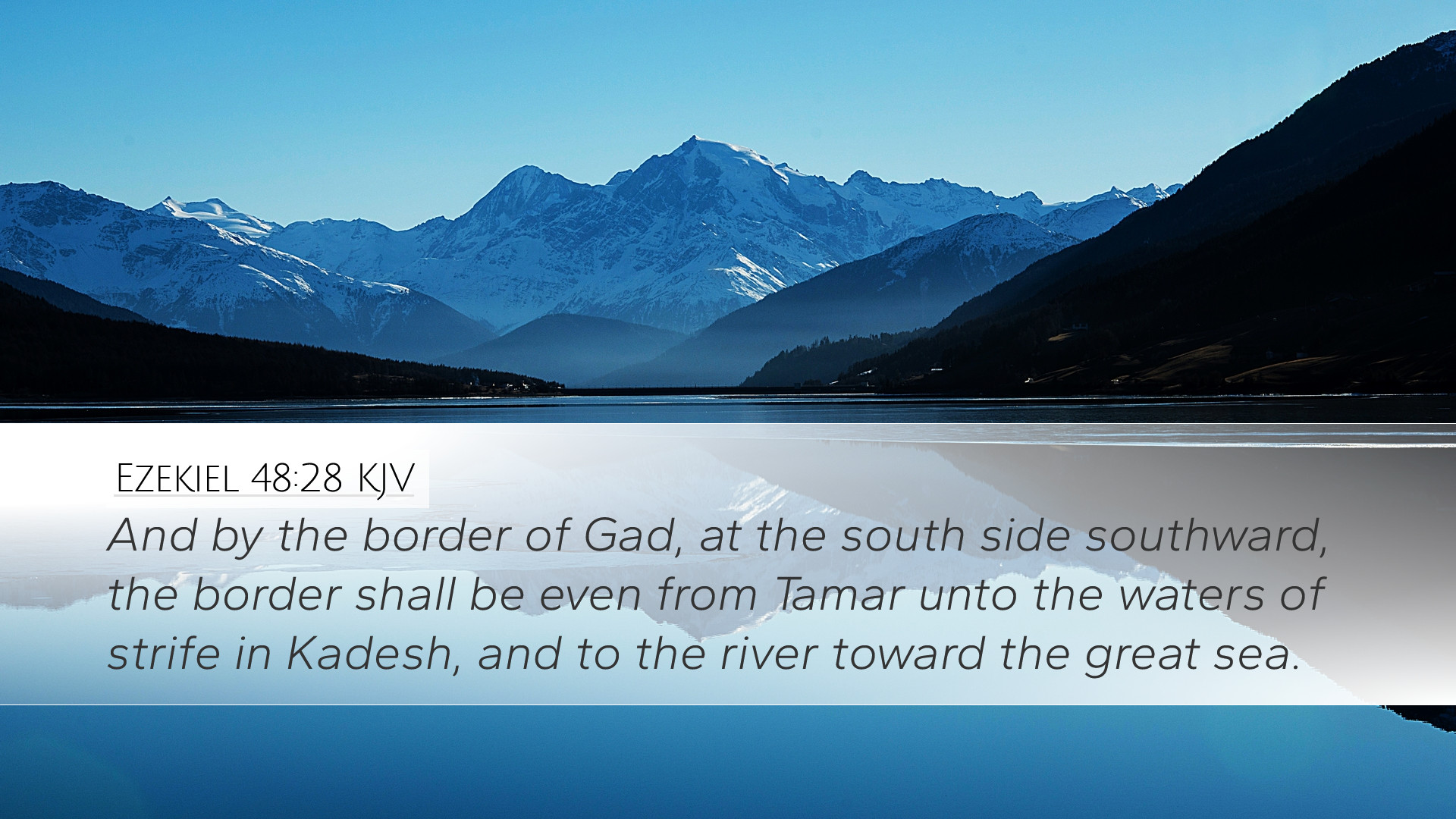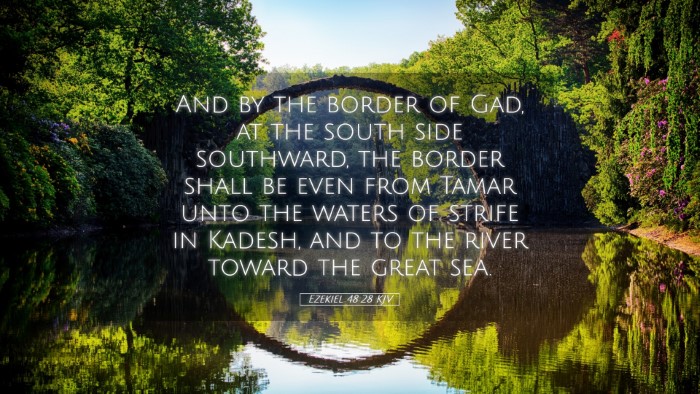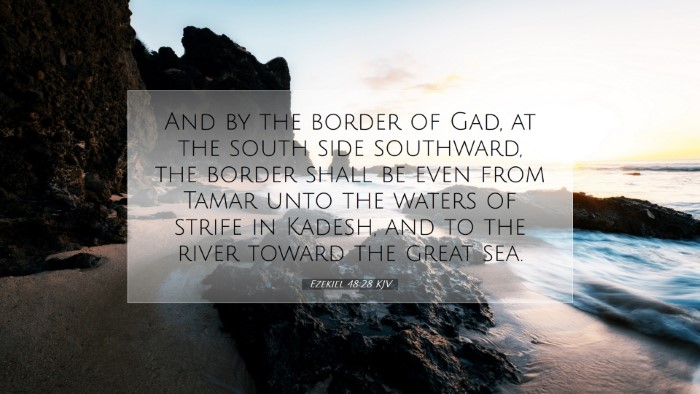Bible Commentary on Ezekiel 48:28
Verse Context: Ezekiel 48:28 states, "And by the border of Gad, at the south side southward, the border shall be even to the east side of the river Jabbok, unto the south of the great sea.” This verse is situated within a detailed vision of the restored Israel and describes the boundaries of the tribes within the promised land, emphasizing the land's division and God’s sovereign plan for His people.
Summary of Insights from Public Domain Commentaries
General Observations
Ezekiel's prophecy is deeply rooted in the historical context of Israel, illuminating the future restoration of the nation. This vision was provided to give hope amidst the desolation of exile, reaffirming God's covenant promises.
Commentary Insights
-
Matthew Henry:
Henry notes that the borders assigned to the tribes symbolize the equity of God's distribution. The southern boundary of Gad indicates both a geographical and spiritual significance, where the tribe of Gad was to occupy a portion that would remind them of God's faithfulness.
-
Albert Barnes:
Barnes highlights the importance of the Jabbok River, which serves as a natural boundary. This river is not only significant geographically but also recalls the patriarch Jacob's struggle, pointing to the themes of conflict and reconciliation inherent in the history of Israel.
-
Adam Clarke:
Clarke emphasizes the fact that the land distribution is according to God's design, showcasing His providential governance. He suggests that the mention of the sea at the southern border indicates not just a physical boundary but also a demarcation of blessing and fulfillment of promises and prophecy.
Theological Themes
The allocation of land to the tribe of Gad, as detailed in Ezekiel 48:28, reflects key theological themes relevant to pastors and theologians:
- Divine Sovereignty: God orchestrates the affairs of nations and individuals. The precise delineation of geographical boundaries is a testimony to His control over every aspect of creation.
- Covenant Faithfulness: This passage affirms that God remains faithful to His covenant with Israel, ensuring that each tribe receives its promised inheritance, which serves as a reminder of God’s enduring promises to His people.
- Restoration and Hope: In the context of Israel’s exile, Ezekiel offers a picture of hope. God envisions a future where His people are restored both spiritually and physically, aiding them in looking forward to a time of renewal amid despair.
- Unity of God's People: The allocation underscores the importance of unity among the tribes, reminding believers that in Christ, people from diverse backgrounds are one body, holding to the same promises of God.
Practical Applications
Here are some applications derived from Ezekiel 48:28 for modern believers, pastors, and theologians:
- Personal Inheritance: Just as Gad received a portion of the promised land, believers can reflect on their personal inheritance in Christ. Each believer is provided with spiritual blessings that ought to encourage and motivate them in their faith journey.
- Assurance of God's Sovereignty: Amidst life’s uncertainties, believers can take comfort knowing that God has established their boundaries, both physically and spiritually, leading them towards His divine purposes.
- Community and Encouragement: Understanding the shared heritage of faith can inspire believers to unite and support each other, much like the tribes of Israel, emphasizing the necessity of fellowship within the Body of Christ.
Conclusion
Ezekiel 48:28 serves as a powerful reminder of God's sovereignty, faithfulness, and the promise of restoration to His people. The insights gleaned from the commentaries by Henry, Barnes, and Clarke deepen our understanding of this passage, revealing its rich theological significance and practical implications for contemporary believers.


